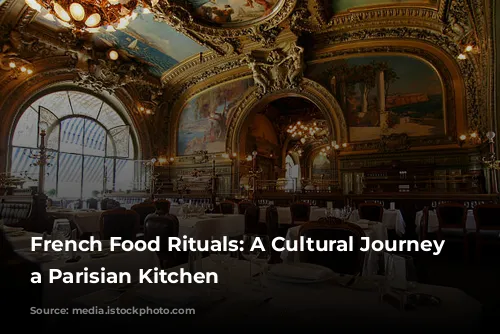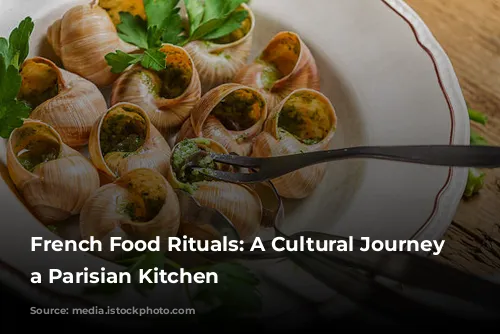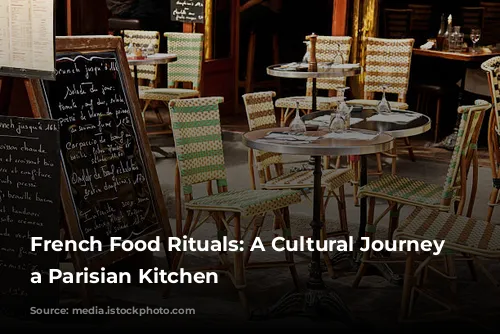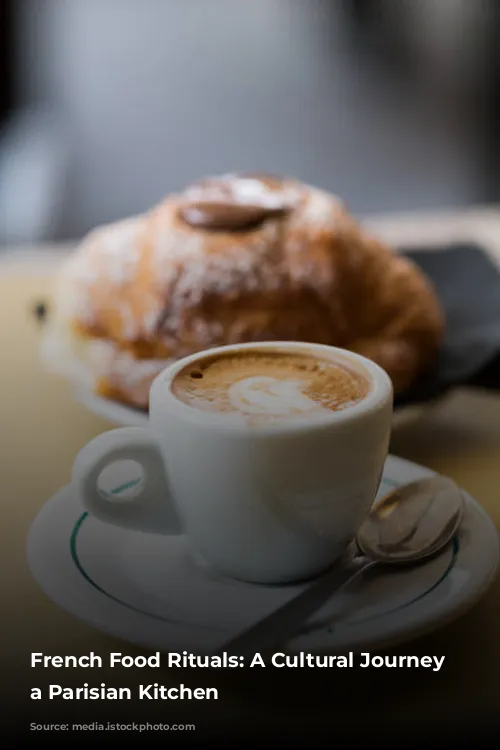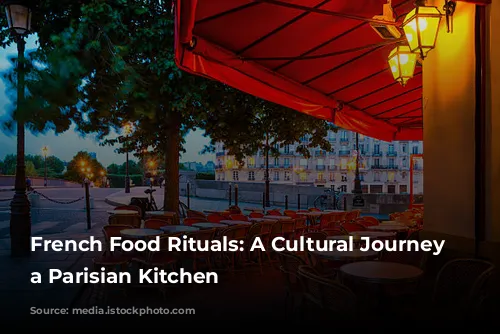Welcome to a world of delicious discoveries! Ever wondered why the French are so particular about their food? It’s not just the taste buds; it’s a tapestry of customs woven through generations. From the iconic baguette to the infamous goûter, let’s dive into the captivating world of French food etiquette and uncover some surprising revelations.
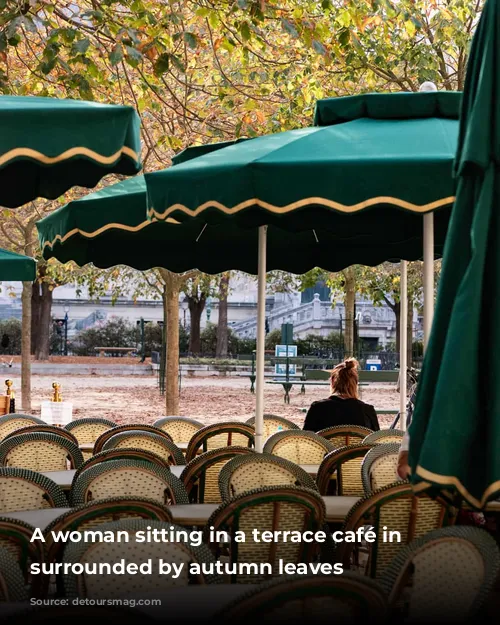
The Sacred Bread: A Culinary Staple
The French have a deep love affair with bread, a love affair that’s woven into the very fabric of their culture. It’s not just a side dish, it’s a crucial part of every meal. Picture this: Parisians strolling down the street, a perfectly formed baguette peeking out of their shopping bags. This image is not a stereotype; it’s a reality!
And it’s not just the baguette that reigns supreme. From the humble bread roll to the elegant brioche, every meal begins with a piece of bread, and many end with it too. In fact, using bread to soak up the last drops of sauce is not just acceptable, it’s almost encouraged! It’s a testament to their appreciation for every bit of flavor.
This emphasis on bread is not just about taste; it’s a cultural tradition that runs deep. It’s a symbol of sustenance, a comforting ritual, and an essential part of their social fabric.
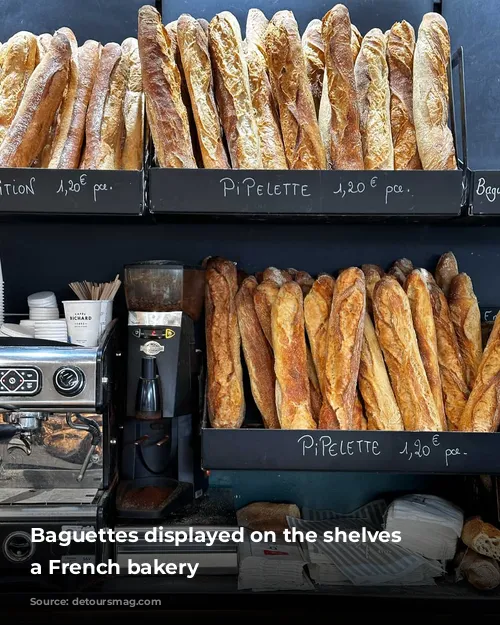
Snacking: A French Paradox
Now, here’s where things get interesting. While the French might seem like the ultimate “eat-your-meals-on-time” crowd, there’s a twist. They do have their own version of snacking, but it’s a carefully choreographed affair.
The boulangerie, a haven of fresh bread, is the stage for the French snacking ritual. Imagine this: you walk into a cozy boulangerie, the aroma of fresh bread filling your senses. You pick out a baguette, warm and inviting, and you find yourself “performing a beloved ritual of the French,” as my husband eloquently put it. It’s the act of tearing off the warm end of the baguette, known as le quignon, and enjoying it on the walk home. This, my friends, is acceptable snacking in France.
So, while the French might frown upon snacking outside designated meal times, there are exceptions. And they certainly know how to enjoy a little indulgence. It’s a testament to the unique way they blend tradition with spontaneity.
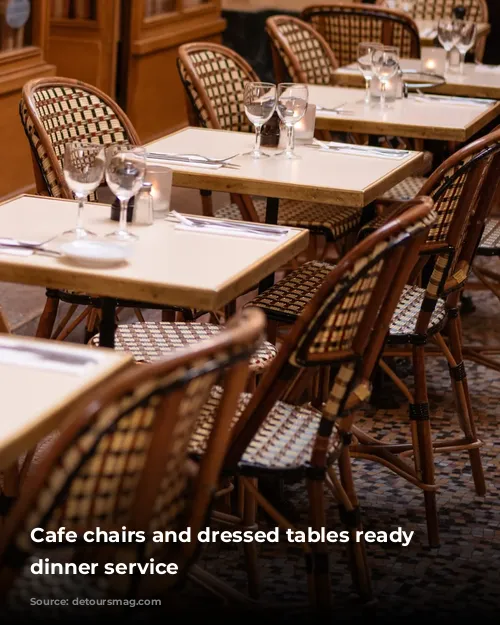
The Mystery of the Croissant: A Breakfast Debate
For many, the croissant is the ultimate breakfast indulgence. It’s a symbol of Parisian mornings, a flaky pastry filled with buttery goodness. But in France, the croissant is treated with a certain degree of respect, almost reverence.
The French might see the croissant as a “more elevated version of bread,” but they wouldn’t dream of consuming it every morning. It’s a special treat, reserved for special occasions or enjoyed in moderation. It’s a testament to their appreciation for the finer things in life, their desire to savor each experience, and their commitment to a balanced diet.
This approach to the croissant is a stark contrast to the “daily croissant” lifestyle of many foreigners in France. This is where cultural clashes can occur, leading to the infamous “Parisian 10 pounds,” as some call it.
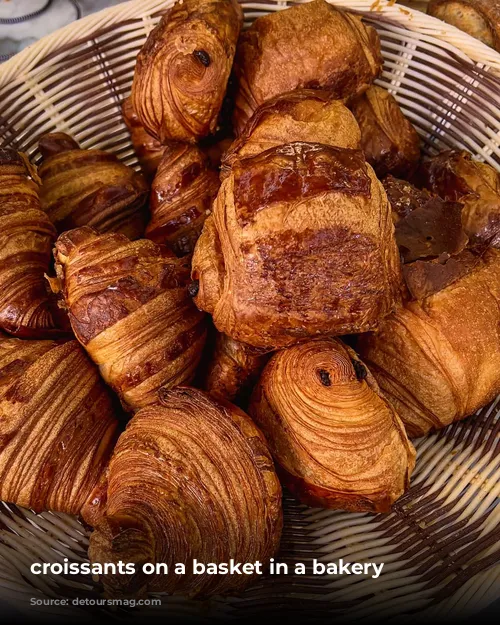
Goûter: A Sweet Tradition
Goûter, the French afternoon snack, might appear similar to tea time in other cultures, but it’s more than just a casual snack; it’s a cultural ritual. It takes place between 4 and 5 PM, and it has a strict rule: it’s always sweet.
For a foreigner, the idea of goûter can be quite confusing. While we might imagine a diverse array of savory treats, the French view it as a time for sweet delights. This is why you’ll find a variety of cakes, cookies, and pastries gracing the tables during goûter.
The tradition of goûter is deeply ingrained in French culture, often associated with childhood. It’s a time for kids to come home from school and enjoy a sweet treat before dinner. But even adults often indulge in this delightful ritual.

The French and Food: A Love Story
Food in France is more than just sustenance; it’s a way of life. It’s about tradition, ritual, and enjoying the simple pleasures. And even though there might be a few rules and regulations surrounding their culinary customs, it’s important to remember that these rules are born out of a love for food, a desire for balance, and a deep appreciation for their cultural heritage.
So next time you find yourself in France, embrace the rituals, savor the flavors, and enjoy the culinary journey. You might be surprised by the unexpected delights and the deep cultural insights that await you.

